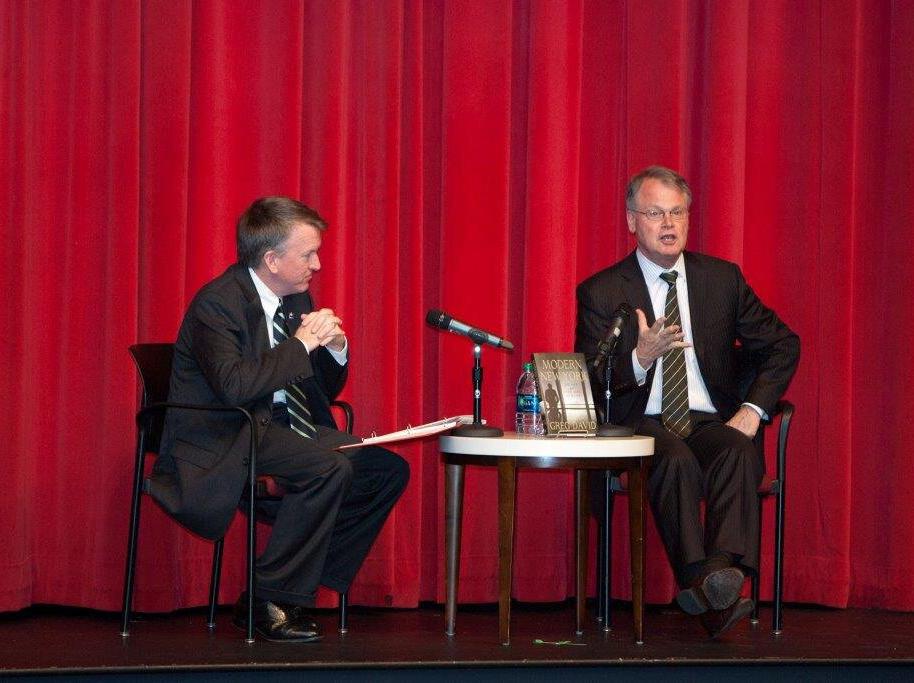Award-winning journalist and author Greg David spoke and participated in a discussion at the Little Theater about the future of New York City and the impact that each mayoral administration has had on the history of the city since the late 1960s on Thursday.
David has a blog and writes a weekly column for Crain’s New York Business. His book, “Modern New York: The Life and Economics of a City,” provided most of the material for his presentation. The book discusses the economic history of New York, the transformation caused by economic forces and the economy’s connection to the political machine, particularly the mayor’s office.
David described a brief history and evolution of every New York mayoral administration since Ed Koch’s time in office from 1978 to 1989. He briefly mentioned the recession that took place in New York City during the administration of John Lindsey in the late 1960s, but only because it laid the perfect foundation for Koch to come into office and fix the problem by shifting the city’s focus.
David emphasized that every mayoral administration since Koch’s has placed an intense focus on putting the city’s economy and business sector first on the agenda. This focus stems from the fact that New York has been hit with several recessions over the years, and a solution such as a focus on the economy is what has saved the city again and again.
However, David says that the recent election of Bill de Blasio presents a drastic change to that mindset. He said that de Blasio will likely place an emphasis on a redress of social issues instead of on economics. This change will be significant, as it will be the first time that social issues will drive an administration since the 1970s.
David said that de Blasio’s election shows that we have reached a “watershed moment” here in New York by “rejecting what has been in City Hall since 1978.” Voters clearly became tired of Michael Bloomberg, who David says could no longer connect with his constituents during his last few years as mayor. Bloomberg, although leaving office having accomplished a great amount, refused to admit that there was economic inequality in the city, which many voters clearly recognized.
Inequality has become an issue that is impossible to ignore, but Bloomberg did exactly that, which contributed to a ‘Bloomberg fatigue’ among many citizens.
Despite the drastic changes that will likely take place during de Blasio’s time in office, David says that New York City is in a fairly stable condition at this point in time. The economy is more diversified as both the tourism and technology industries are booming, the city has also passed its highest employment peak and it is now a significantly safer place to be.
This stability allows de Blasio to move forward with his focus on tackling social issues and working to erase the inequality that exists between many New Yorkers. David’s discussion ended by saying that things can only improve and we will see what happens with his intended social changes and economy.








